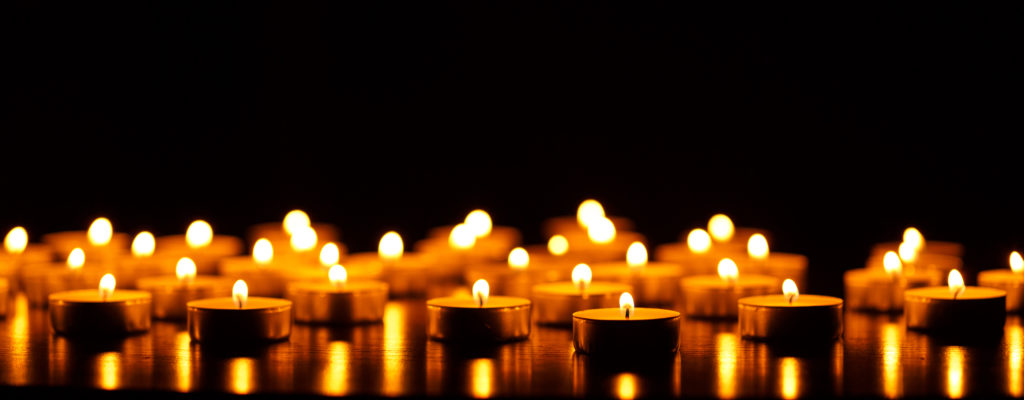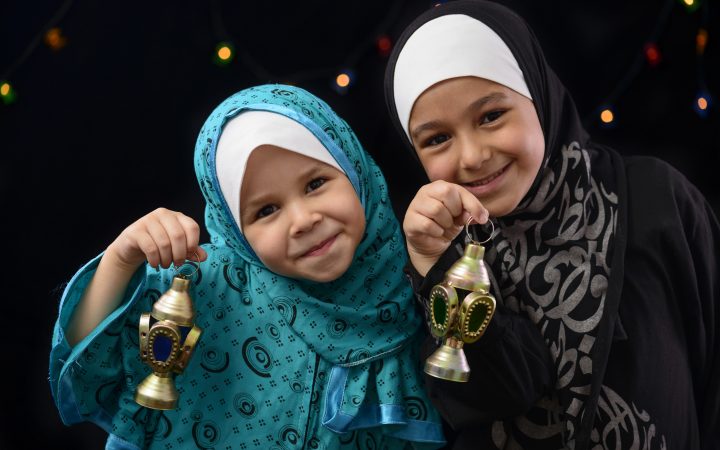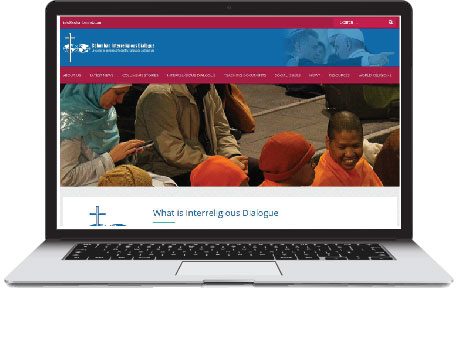World day of Prayer for Peace

Pope John Paul II organised the first World Day of Prayer for Peace in Assisi, Italy, in October 1986. In all there were 160 religious leaders including 32 Christian religious organisations and 11 other world religions. The Pope closed the meeting with the call to continue spreading the message of peace and to “live the spirit of Assisi”. Pope Benedict XVI and Pope Francis have continued to work for interreligious solidarity and friendship.
In 2014 Pope Francis was the first Pope to invite leaders from other faith traditions, Rabbi Abraham Skorka and Sheik Omar Abboud to join an official papal delegation, when he visited the Holy Land in 2014. He’s also expressed a desire to settle a common date for the celebration of Easter with the Orthodox churches of the East.
“Start by doing what is necessary, then what is possible, and suddenly you are doing the impossible” – St Francis of Assisi
We must have respect for each other, and for religious freedom
“Past experience teaches us that, unfortunately, relations between Christians and Muslims have not always been marked by mutual respect and understanding….The lessons of the past must help us to avoid repeating the same mistakes. We must seek paths of reconciliation and learn to live with respect for each other’s identity. The defence of religious freedom, in this sense, is a permanent imperative, and respect for minorities is a clear sign of true civilisation.” – Pope Benedict XVI, Cologne, 20 August 2005
5 ways to educate your children in peace
The famous prayer attributed to St Francis as it expresses his spirit so perfectly begins with the words, “Lord, make me an instrument of your peace”. Recently two great Christian world leaders, Pope Francis and the Patriarch Ecumenical Patriarch Bartholomew I of Constantinople, called upon Muslims and Christians everywhere “to work together for the sake of justice, peace and respect for the dignity and rights of every person”.
What better place to begin this work of peace begun by St Francis during the Crusades than at home with our families?
- Try peace-building table talk
The image conveyed on the TV, newspapers and in social media of Islam and Muslims is often sensationalised news of violent criminal acts committed overseas. Families have opportunities to break down negative stereotypes about Islam and Muslims in their conversations around the dinner table.
Remember the Muslim family living next door or down the street, Muslim shoppers at your local supermarket, fellow school students, work colleagues, or players in your favourite sports team. Discuss the TV news or current affairs programs and challenge any stereotypes presented there.
You could even research facts to discuss over dinner – don’t just rely on Google, but seek reliable information from scholarly sources, and as far as possible from well-informed Muslims. You may be surprised to find how much we have in common!
Bonus? This helps to form children’s critical thinking processes and research skills. - Put the kettle on (or the BBQ)
If there are Muslims in your neighbourhood, find appropriate occasions to invite them into your home to socialise together, so that your child or children see this interfaith interaction as simply a part of life, not just an esoteric moment.
Muslims are an integral part of our society, regular Aussies just like anybody else. In fact the Australian Bureau of Statistic tells us that 40 per cent of all Muslims are Australian-born (the figure would be much higher for young Australian Muslims). In counter to the awful slogan, “Go back to where you came from!”, the reality is that Muslims mainly come from Bankstown, Auburn, Lakemba, and our own neighbourhoods. In civic terms, as citizens of Australia, they are a part of us, and we are a part of them.
Bonus? You’ll all make new friends. - Take a family excursion with a difference

Visit a local mosque together. Muslims know they must play a role in building relations with the wider Australian society, so on occasions they open the doors of the mosque and invite others into their sacred space. They are practised in giving guided tours and explaining their beliefs and practices. Visiting their place of worship is a good, practical way of entering into their world. When visiting the mosque, seeing Muslims at prayer, and hearing Muslims talk about their faith you will be surprised at the many things we hold in common, though of course there are differences which remain.
While remaining true to our own faith, we can and must respect the faiths of others, work together on the commonalities, and respect the differences.
Bonus? What a great opportunity to deepen children’s understanding of their Catholic identity!
- Wish someone a “happy Eid”
Send greetings to Muslims in your classroom or your neighbourhood on their feast days. When people wish us “happy birthday” or “happy Christmas”, we feel acknowledged, accepted and affirmed. So on the two major Muslim feast days – Eid al-Fitr at the end of Ramadan and Eid al-Adha about two months later – give greetings to Muslims you encounter and they will also feel acknowledged, accepted and affirmed.
You could even share an iftar meal together. During the month of Ramadan Muslims fast from dawn till dusk – no eating, no drinking, no sexual activity, no bad behaviour. In the evening families and friends gather and share a meal to break the fast, called an iftar meal (it literally means ‘breaking’ the fast). More and more Muslims are inviting people of other faiths to join them for the iftar meal. They are hosted by Muslims, by civic groups, the premier, the parliament, even sometimes by the bishop! Look out for an invitation in your local newspaper, parish bulletin, or Catholic media. It is an ordinary, everyday activity, and by doing it together we witness our shared faith in God and our shared humanity.
Bonus? Affirming the universal and spiritually-rich rituals of fasting and feasting. - Pray for Muslims
Make them a regular part of your prayers of intercession. For example, especially during the month of Ramadan I pray, “for our Muslim brothers and sisters, that by the physical discipline of fasting and the spiritual devotion of their hearts, they will find grace and favour in God’s eyes”.
If we did this in our families, homes, and in our parishes on Sundays, it would remind Christians that there are other believers in our society who are following God according to the light given to them, that the family of God is much greater than our own traditions, and that there are others practising their faith with whom we share the pilgrim journey of life.
Bonus? Being inspired to pray for peace and solidarity with our Muslim brothers and sisters is a gift from God the Father of all!
A great resource 
To learn more about interreligious dialogue, and to get some great, reliable resources
Columban Website
About the author
Fr Patrick McInerney SSC
A Columban missionary priest, theologian, university lecturer and the Director of the Columban Mission Institute in North Sydney, NSW, the Coordinator of its Centre for Christian-Muslim Relations and a staff member of its Centre for Mission Studies. He ministered in Pakistan for 20 years, including in Christian-Muslim relations. He is a member of the Australian Catholic Council for Ecumenism and Interreligious Relations, a board member of the Australian Catholic University’s Centre for Inter-religious Dialogue, and is on the Executive of the NSW branch of Religions for Peace.

